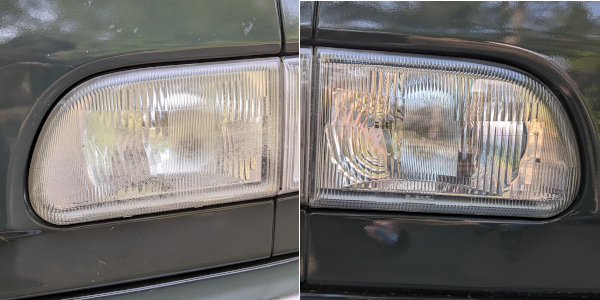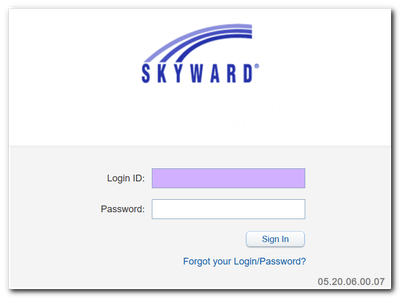At Western Governors University (WGU) there is a big emphasis, at least at the Teachers College, on self reflection.
They beat the Gibb's Reflective Cycle drum pretty hard. I won't be doing that formal of a process, but I thought it
would be good to reflect on my time at WGU. At this point I have completed all course work and just have a few days
of student teaching to complete. When I'm finished I'll have a 'Master of Arts in Teaching, Science Education
(Secondary)' with an endorsement in Chemistry.
I chose WGU for two major reasons. First, it was a relatively inexpensive option. Teaching isn't exactly lucrative so I
didn't want to spend a fortune getting a degree. Second, the courses are self-paced. This means that you can go at your
own pace, which both saves money (if you go fast), and allowed me to work as I got my degree.
Mentor
Just about the first thing that happens at WGU is that you get assigned a mentor. Ostensibly this person will get to
know you and be there to guide you through your entire time at the University. That didn't work out so well for me.
From the beginning my mentor was late to nearly every scheduled call. On several occasions she said it was because
she had two people with the same first name and thought she had already talked to me. It seemed like she was just trying
to read the notes and figure out who I was at the start of each conversation. I frequently had to remind her of my
background and correct her based on the fact that we live in Washington and have differing requirements.
My mentor was also gone a lot. I mean a lot. Each time she was gone I'd be assigned a temporary replacement who would
want me to send them a bunch of information about where I was in my program and then would never contact me again. The
last time that happened I sent a reply stating that she was not my leave replacement, but the replacement for the
person that was the replacement for my mentor whom I hadn't talked to in months and that I wasn't sending anything. Now
I didn't really need any hand holding, but if I had been that kind of person this probably would have been stressful for
me.
For my last call, I scheduled 30 minutes. She called me 28 minutes late. I had left for work five minutes before that
figuring she wasn't going to call at all. I had bad cell reception and she sent me an email that read, in its entirety,
'I attempted to reach you for our call, please call me back.' No mention of being sorry about being 28 minutes late,
just implying that I was the reason for our missed call.
It has been a frustrating relationship that was required of me, but not helpful to me. Maybe for someone else, or
with a different mentor, this could have been a good thing. Instead I dreaded every call.
Coursework
The courses weren't great. They were often just a series of brief articles to be read online or sometimes a chapter or
two from a book. They were pieced together without much, if any, original content between them. What I missed was having
the experience of an instructor explaining why they prefer one idea to another or how the concepts can work together.
For example, one course ended with two readings. They were complete opposite techniques on how to handle some teaching
task. Then that was it. There was no WGU-specific commentary about when or why you might choose one over the other. No
assessment task that had you compare and contrast or explain why you would use one or another. Just here they are.
One course was not much more than a series of Khan Academy videos. I found watching them on Khan Academy, with the
additional content and context provided there to be better than watching them through WGU.
Another course hit the 5E science lesson plan template pretty hard. It included a video from the creators of the 5E
system explaining how so many people use the system incorrectly and then WGU has us use it incorrectly in that exact
way for all future lesson plans. I literally went back and rewatched the interview because I thought I must have
understood.
One class I passed entirely by reading the instructor's introductory email. It was clear to me from her descriptions
of the tasks what she wanted. I did not need to interact with the content at all.
On one occasion we were assigned to read an interview about a book instead of the book itself. I'm sure that saved WGU
some money (since your tuition and fees covers all resources), but reading a blurb is not the same as reading the book.
I definitely would have liked a lot more on classroom management. As well as less of an emphasis on elementary which
was the focus of so much of the content.
In all, it did not feel very rigorous to me. Most of the content was surface level with little depth or complexity.
Rubrics
When I started teaching the fire science class at the college I was proud of myself for providing a grading rubric to
students for each assignment. I thought I was clearly communicating the expectations of the assignment and providing an
objective way to grade. Having completed this program with WGU, however, I feel like rubrics are far from a perfect
system.
The way assessments are graded at WGU is via rubric. They lay out exactly what they want. You must meet every single
thing on the rubric no matter how small to pass. You could write a best selling book on the topic and leave one thing
out and you would have to redo the task. They are so rigid that I quickly learned not to bother with anything outside
the rubric. There was no room for exploration or interest. You had to use the phrase or term listed in the rubric and as
long as you did that, you were fine. Fail to do that, no matter how excellent the work product, and you got to do it
again.
They call it mastery learning. But, for me, it resulted in some really low quality work. Why bother doing more if they
so clearly marked both the minimum and maximum bars? It seemed that the worse the quality of work (more paraphrasing and
less thinking) the more likely I was to get a WGU Excellence Award for the assignment.
The benefit of this experience for me is that I have a new opinion on rubrics and grading. When followed so exactingly
you do come somewhere near objectivity. But you have to give up the ability to acknowledge that while a student did not
exactly follow your plan they demonstrated their learning. Students quickly recognize exactly what they need to do and
will likely not do more than that. This led me do my own research on grading and found other systems in the genre of
'ungrading' that I will try in my own classroom.
Instructors
Early on, before I figured out the rubric thing, I scheduled a call with one of my instructors because I was unsure
what they were looking for. It was a frustrating experience. For every question I asked she did her best TV therapist
impersonation answering with 'What do you think it means?' Eventually I stated that I thought it meant that WGU just
wanted me to parrot back what was on the rubric. She didn't deny it. Classes got much easier after that and I got a WGU
Excellence award for the assignment.
After that, I also stopped contacting or reaching out to instructors. I did have one instructor reach out to me of his
own accord which I did appreciate even if I didn't need any assistance, but was just having a busy week.
Observations and Demonstration Teaching
WGU is entirely self-paced right up until you need them to do something for you. In teaching, that something is getting
you assigned to your observations (12 days in a classroom) and then demonstration teaching (12 weeks). The rules are
that you are absolutely not, under any circumstance, allowed to contact a school district directly. It must all go
through WGU. Because you pay by 6 month term at WGU, every day you wait around for them to do something, is a day you
are paying for nothing and getting closer to purchasing another 6 month term.
It seemed to me that the entirety of WGU's outreach was to send an email to the school district about once every 2 weeks
asking if they would accept me for placement. I would periodically reach out and suggest other nearby districts they
could try, though they were often reluctant to do that. While my mentor repeatedly said that getting my observation
placement would take 2 weeks or so, it ended up taking 89 days. In the end we broke the rules and Amber's principal
reached out to other principals in the district and had my placement done in less than a week.
Demonstration teaching (DT) was the same issue. You are forbidden from making contact with schools directly. They say
it can take up to 60 days, but make no guarantees. All the time you are waiting there is no classwork or anything
else to do. They told me I could NOT start another program (such as a degree in computer science) while I waited. This
time we waited until it looked like I would not receive a placement in time for the school year and would need to start
yet another term. Then we activated the friends and family network and I found a placement in less than a week.
During this time I tried to reach out to the dean of the teacher's college. I was never able to make contact with them.
The school does not post contact details and calling the switchboard resulted in many dead ends and voicemails unreturned.
I did eventually receive a call from the person that is in charge of the placement coordinators. They promised me they
were doing all they could, that my coordinator was "the best", and that she would send me her contact info so I could
reach out to her directly. She promptly never sent me anything and I never heard from her again.
During my cohort, I found I was not alone. Even though the manager above mentioned that I was the exception and that it
never took so long when I got to DT I found that many of my fellow student teachers had much longer wait times than I
had. I suppose if we hadn't broken the rules I'd still be waiting and maybe I could have set the record.
The observations during DT were mostly painless. I recorded myself teaching and uploaded the recordings to the school's
system. I then got feedback on the recordings. I'm not sure it was particularly helpful since the clinical supervisor
could only see and hear a small fraction of what was going on in the class, but it was easy for me to do and she was
friendly and supportive.
Reputation
I'm not sure that WGU has the best reputation in our area. One superintendent I interacted with took a deep sigh and
said 'They are hard to work with' when I mentioned the trouble I was having getting the district to respond to my placement
requests from WGU.
When I called the fingerprinting location to tell them I needed to redo my fingerprints they asked, without any prompting
from me, if I was with WGU. She said they are the only school they have problems with. She helped me get a second set
for free since it happens so often and is clearly the fault of the school and not me.
Final Thoughts
In the end, I got what I needed. I'll have my masters and provisional teaching certificate. I did it in less than 18
months while working more than full time. I could have done it with one less term and for a third less money if WGU
had a better placement system. I think they lack the personal relationships required to make it happen. Be ready
to find your own placement or die waiting.
The content and coursework was not great. I don't feel that I actually learned that much from the program. The
explicitness and strictness of the rubrics makes it both possible, and in a weird way almost necessary, to stay shallow
and only respond to the prompt exactly as described. If all you need is to get the cert, it will get you there, but
don't expect deep learning about teaching and education.
I would only recommend WGU for those that know what they are getting in to and have the personal contacts to make
placements happen. I know this was a bit of a rant, and mostly negative, but I wanted to put out what I went through
with WGU so that other people could have a clearer picture of what they might experience.


